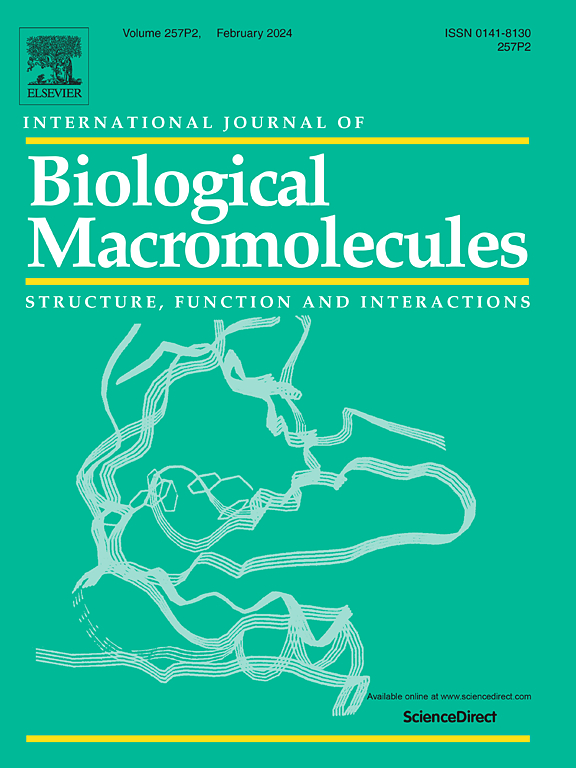Effect of gelatinizing temperature and moisture on the retrogradation of coix starch
IF 7.7
1区 化学
Q1 BIOCHEMISTRY & MOLECULAR BIOLOGY
International Journal of Biological Macromolecules
Pub Date : 2025-05-02
DOI:10.1016/j.ijbiomac.2025.143860
引用次数: 0
Abstract
Growing snacking trends are boosting the market demand for pre-gelatinized seed flours and the degree of crystallinity of gelatinized starch could be a useful determinant of shelf life and quality. We investigated the effect of gelatinization temperature on purified coix starch (PCS) and the role of added moisture on retrogradation of gelatinized PCS at different temperatures. Disruption of granular structure of PCS with progressive agglomeration resulted in the formation of gelatinized mass with increasing gelatinizing temperature. Amylose content, hydration, degree of gelatinization (DG) and peak viscosity increased while relative crystallinity and short-range structures decreased with elevated gelatinizing temperature. Retrogradation of PGCS increased crystallinity with reduced hydration, peak viscosity without significant change in flow properties and amylose content. Thermal decomposition of PGCS occurred at lower temperature with elevated gelatinizing temperature. PCS was more resistant to thermal decomposition as compared to PGCS. The degree of crystallization affected by added moisture suggested the disruption of molecular arrangement. Higher moisture levels were required for PGCS with lower DG for crystallinity during retrogradation whereas low moisture levels were needed for PGCS with greater DG. Controlling moisture level seems to be critical for the quality and shelf life of the products derived from gelatinized PCS.
糊化温度和水分对薏苡仁淀粉降解的影响
日益增长的零食趋势推动了预糊化种子面粉的市场需求,糊化淀粉的结晶度可能是货架寿命和质量的有用决定因素。研究了糊化温度对纯化薏苡仁淀粉(PCS)的影响,以及不同温度下添加水分对糊化后的PCS退化的影响。随着糊化温度的升高,聚碳酸酯的颗粒结构被逐步团聚破坏,形成糊化团块。随着糊化温度的升高,直链淀粉含量、水化程度、糊化度(DG)和峰值粘度增加,相对结晶度和短程结构降低。PGCS的退化提高了结晶度,降低了水化,峰值粘度,但流动性能和直链淀粉含量没有明显变化。随着糊化温度的升高,PGCS在较低温度下发生热分解。与PGCS相比,PCS更耐热分解。添加水分对结晶程度的影响表明分子排列受到破坏。具有较低DG的PGCS在退化过程中结晶度需要较高的水分水平,而具有较高DG的PGCS则需要较低的水分水平。控制水分水平似乎是至关重要的质量和保质期,从胶化PCS衍生的产品。
本文章由计算机程序翻译,如有差异,请以英文原文为准。
求助全文
约1分钟内获得全文
求助全文
来源期刊
CiteScore
13.70
自引率
9.80%
发文量
2728
审稿时长
64 days
期刊介绍:
The International Journal of Biological Macromolecules is a well-established international journal dedicated to research on the chemical and biological aspects of natural macromolecules. Focusing on proteins, macromolecular carbohydrates, glycoproteins, proteoglycans, lignins, biological poly-acids, and nucleic acids, the journal presents the latest findings in molecular structure, properties, biological activities, interactions, modifications, and functional properties. Papers must offer new and novel insights, encompassing related model systems, structural conformational studies, theoretical developments, and analytical techniques. Each paper is required to primarily focus on at least one named biological macromolecule, reflected in the title, abstract, and text.

 求助内容:
求助内容: 应助结果提醒方式:
应助结果提醒方式:


